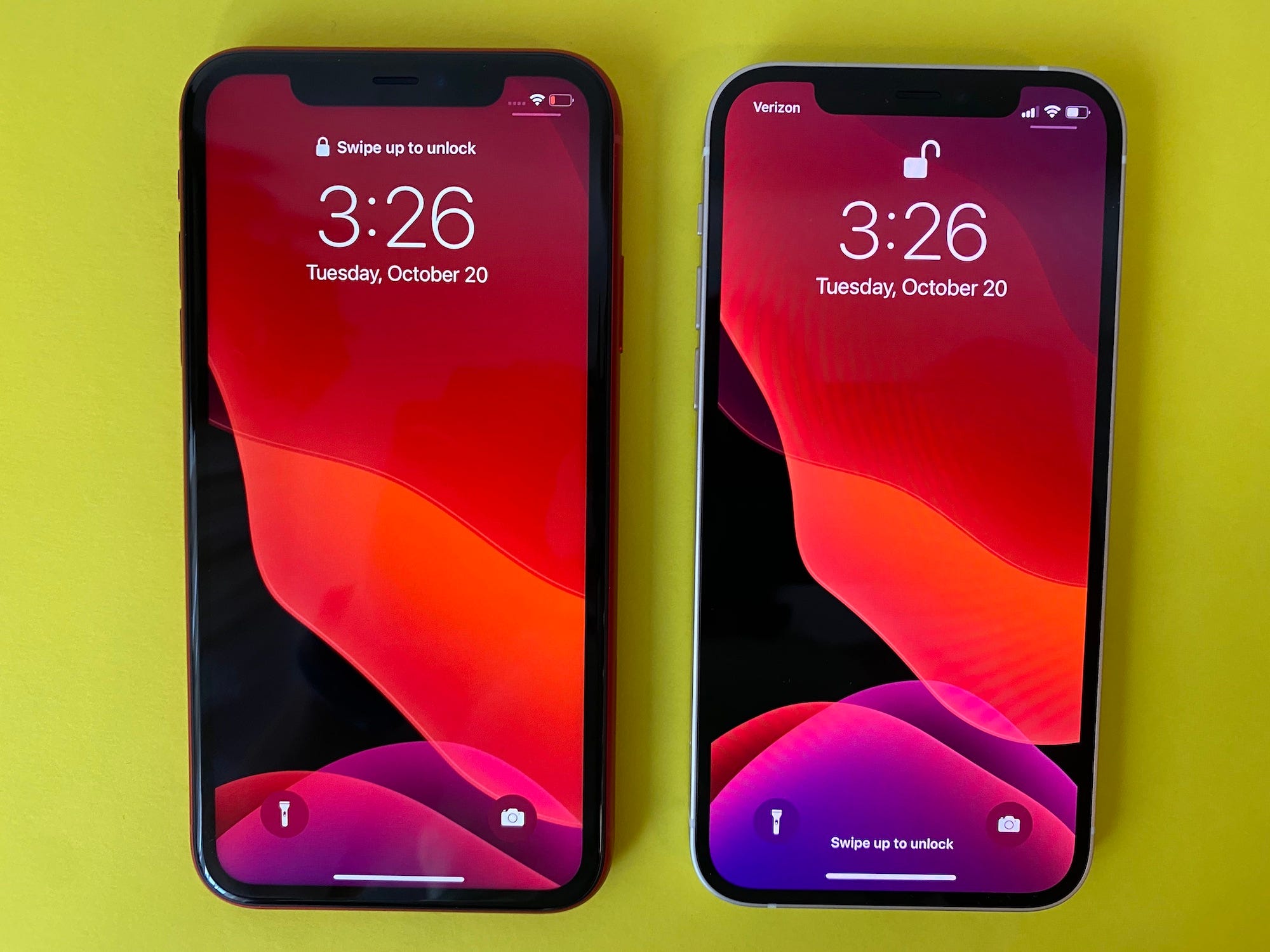
Lisa Eadicicco/Business Insider
- Apple didn’t provide guidance for its fiscal Q1 2021 quarter when it reported Q4 earnings on Thursday because of uncertainty caused by the COVID-19 pandemic.
- That number is important because it usually provides a big clue about how Apple’s new iPhones are expected to perform during the holiday season.
- Unlike years past, Apple’s Q4 results didn’t provide an indication of how first weekend sales for the iPhone 12 fared because the new smartphones launched later than usual.
- Instead, Apple executives gave some vague hints about what reception to the iPhone 12 has been like so far, saying it expects iPhone revenue to grow in the December quarter.
- Visit Business Insider’s homepage for more stories.
When Apple reported its fiscal fourth quarter earnings on Thursday, Wall Street was all ears for any sign of how well the iPhone 12 has been selling. While Apple did provide some vague, optimistic notes on the matter, it was impossible to get a clear read on this year’s iPhone launch.
That’s because Apple didn’t report the most important number when it comes to indicating new iPhone sales: guidance for the quarter ahead.
Apple beat revenue expectations and posted overall results that were about the same as those from the same quarter one year ago. But iPhone sales dipped to $26.4 billion, falling just shy of analysts’ expectations and below the $33.36 billion in iPhone revenue Apple generated in Q4 2019.
As has been the case in previous quarters, Apple made up the difference elsewhere, namely in its booming wearables and services divisions. Mac revenue also hit a record as people continue to work from home.
Apple did not provide revenue guidance for the upcoming quarter because of the uncertainty surrounding the COVID-19 pandemic, consistent with the approach its taken since the pandemic began.
But that number is particularly crucial for two reasons. Not only does it reveal how much revenue Apple expects to generate during the holiday season, but it also indicates how well the company expects the new iPhone to sell in its first full quarter of availability.
Apple typically begins selling its new iPhone in mid-to-late September, meaning first weekend sales are included in Apple's earnings report for the September quarter. But this year, Apple launched the iPhone 12 later than usual because of the COVID-19 pandemic, so sales performance were not included in this past quarter's results.
"We essentially view this quarter as the drum roll to the main event and the iPhone 12 5G supercycle," Wedbush Securities analyst Daniel Ives wrote in a research note following Apple's earnings report.
Since no initial sales made it into Apple's Q4 2020 earnings report and the company didn't provide guidance for Q1 2021, Wall Street relied on comments made during the earnings call for clues about the iPhone 12's performance.
Luca Maestri, Apple's chief financial officer, and CEO Tim Cook both said the iPhone 12 and iPhone 12 Pro were "off to a great start" following their October 23 release. The iPhone 12 Pro Max and iPhone 12 Mini don't officially hit the market until November 13.
Apple also said during the call that it expects iPhone revenue to grow in the December quarter, even though the iPhone 12 and 12 Pro launched four weeks into the quarter and the other two phones will be launching seven weeks into the quarter.
The company didn't provide more specifics.
Apple CEO Tim Cook hinted in the company's earnings press release that early reception has been positive so far.
"Despite the ongoing impacts of COVID-19, Apple is in the midst of our most prolific product introduction period ever, and the early response to all our new products, led by our first 5G-enabled iPhone lineup, has been tremendously positive," Cook said in the release.
He dropped a few other clues suggesting that the iPhone 12 is performing well without giving details. In response to a question from an analyst, Cook said there is "much more" momentum in customer demand for the iPhone given the recent launch, building on the double-digit growth the company experienced prior to mid-September.
Cook also repeatedly referred to a growing installed base of Apple device users during the call, while referring to the iPhone 12 as Apple's "strongest" smartphone lineup yet.
"For the first time ever, we've launched four iPhones," Cook said. "And there is an iPhone for everyone there."
Apple's comments aren't the only signal that demand for the iPhone 12 could be strong.
TF International Securities analyst Ming-Chi Kuo, who has a reputation for accurately reporting on Apple products, said in a note earlier this month that preorders of the iPhone 12 more than doubled those of the iPhone 11 in its first 24 hours of availability.
The iPhone 11 is still expected to have surpassed the iPhone 12 for first weekend preorders, according to Kuo, but Apple is also launching two additional iPhones next month.
Ives, the Wedbush analyst, estimates that 350 million of 950 million iPhones in use around the world could be in the window of an upgrade opportunity. Apple is said to have ordered at least 75 million units of its new iPhones for 2020, Bloomberg reported.
Expectations for the iPhone 12 had been running high for months, as analysts like Ives have expected that the launch would result in a "super cycle" of upgrades that could pull Apple out of its iPhone sales slump.
We may not have answers pointing to whether that's indeed the case just yet. But Cook also teased that other product updates are on the horizon for the end of 2020.
"Without giving away too much," Cook said, "I can tell you that this year has a few more exciting things in store."

